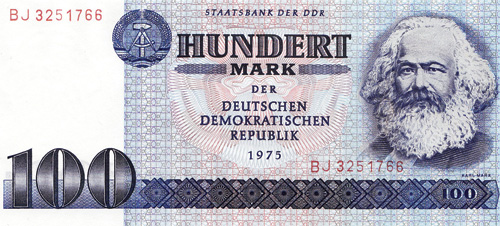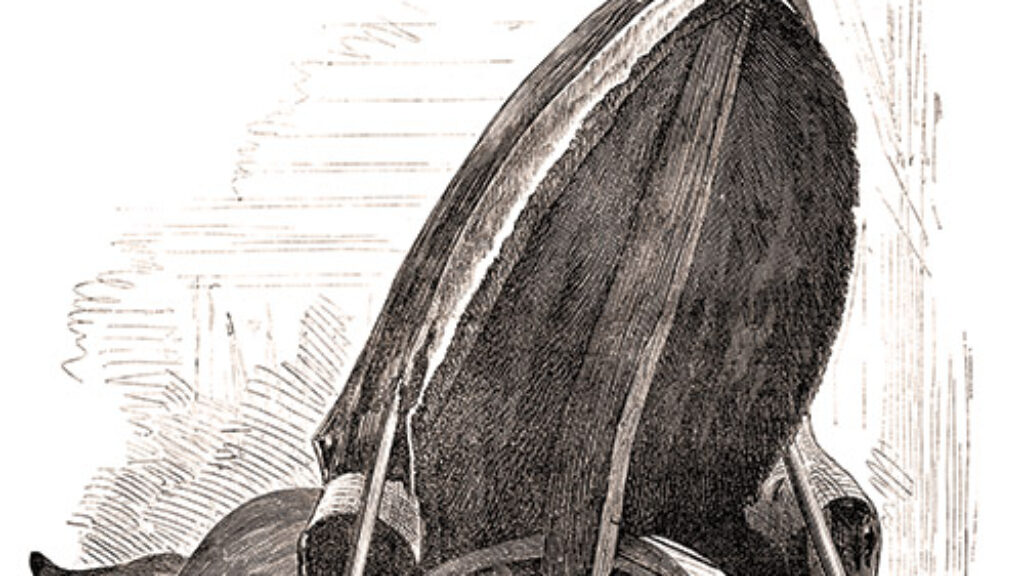Karl Marx, Bourgeois Revolutionary
How should we read the life of a man whose colossal impact on the modern world only became apparent decades—or even more than a century—after his death? This problem lies at the heart of Jonathan Sperber’s magisterial new biography of Karl Marx, a book that brings the world of the 19th-century revolutionary brilliantly to life but, for the most part, avoids tackling the more contentious problem of his legacy. Indeed, Sperber explicitly sets out to write a post-ideological biography of a man who, in retrospect, became the founding figure of communism but never quite made it in his own era, either as an economic and political thinker or as a revolutionary leader.
For, as Sperber reminds us, despite producing occasional pamphlets of genius, Marx never got beyond Volume 1 of Capital in his lifetime and was disappointed by its subdued public reception. The bulk of his literary output consisted of journalistic articles for papers such as the New York Tribune. Too often, Marx’s energies were diverted into well-publicized scraps with fellow exiles and revolutionaries or the exposition of firmly held but frankly eccentric views—most obviously his contention that Lord Palmerston, the great figurehead of patriotic liberalism in mid-Victorian Britain, had for decades been a Russian secret agent.
The revolutions of 1848-1849 were the pivotal moment in Marx’s political life, defining his view of the world and the decades of penny-pinching exile that followed. Yet his activity in these years placed him firmly in the second rank. His posthumous reputation may tower over figures such as the Hungarian Lajos Kossuth or the Italians Giuseppe Mazzini and Giuseppe Garibaldi. But Marx never led a revolutionary regime or a successful uprising. Unlike these great 19th-century figureheads of insurrection, he had no prospects on the radical Anglo-American lecture circuit, not least because he was a truly uninspiring public speaker. Even the International Working Men’s Association, in which Marx was a prime mover, proved a short-lived failure, in stark contrast with its more famous successor, the Second International. What then is the relationship between this life of frustration and unrealized potential and Marx’s subsequent impact? If Sperber is to believed, perhaps not all that much.
The central premise of this biography is that Marx is no longer—and never was—our contemporary. He was, instead, “a figure of a past historical epoch, one increasingly distant from our own: the age of the French Revolution, of Hegel’s philosophy, of the early years of English industrialization and the political economy stemming from it.” This emphasis on Marx as a quintessentially early 19th-century figure strikes me as particularly original. Later generations of activists looked to Marx as the prophet of communist revolution, but Sperber argues that neither his political activity nor the overwhelming majority of the writings published during his lifetime bear out this interpretation. Sperber’s Marx is irredeemably bourgeois: bourgeois in his origins and cultural formation, bourgeois in his lifestyle and aspirations, and surprisingly bourgeois in his approach to revolution.

100 mark note featuring Marx and introduced in 1975 by the Staatsbank of the former German Democratic Republic.
As we all know, Marx was born Jewish. Baptized in early childhood, the ways in which his Jewishness shaped him remain difficult to grasp. Posterity has emphasized Marx’s Jewish origins—and criticized the “self-hating” quality of his 1844 essay On the Jewish Question, in which he identified capitalism with the Jews in derogatory fashion, arguing that “[t]he emancipation from haggling and from money, thus from the practical, real Jewry would be the self-emancipation of our time.” As Sperber notes, this identification of capitalism and moneymaking with Jews and Jewish practices finds echoes in the work of his friend, the pre-eminent forerunner of Zionism Moses Hess, and in the attitudes of his contemporary Heinrich Heine, who only converted in early adulthood and whose contact with Jewish culture was consequently far more meaningful. Indeed, Sperber is at pains to emphasize Marx’s self-identification as a German, aware of his Jewish origins and ambivalent toward them, but predominately shaped by his socialization from early childhood into a very different cultural world. Fifteen years before Darwin heralded the rise of racial thinking and the modern preoccupation with ethnicity, Jewishness remained primarily a religious affiliation, and conversion was more than a piece of paper for children like Marx, whose education set them on a different cultural trajectory from such an early age.
Born as he was into the newly Prussian Rhineland in the aftermath of French occupation, religion nonetheless defined Marx’s intellectual formation and place in society, but, Sperber argues, that religion was Protestant Christianity. The Rhineland was predominately Catholic, but Marx’s father Heinrich, an aspiring lawyer, chose to embrace not the Catholicism of the majority but the Protestant religion that defined the ethos of the Prussian state. This enlightened, rationalist version of Protestantism also infused the work of thinkers like the philosopher Georg Hegel and the theologian Ludwig Feuerbach, both of whom were key intellectual influences for Karl and the Young Hegelian circles in which he moved as a student. As Arnold Ruge, lecturer at the University of Halle and organizational mastermind of the Young Hegelians, put it, “Prussia is the Protestant state and its principle is light and scholarship.”
These influences continued to define key facets of Marx’s thought, even as he rejected both religion (“the opium of the people”) and the authoritarian Prussian state that pursued him relentlessly for decades to come. As a political exile in Paris and Brussels before the outbreak of the 1848 revolutions, Marx was exposed to the classics of political economy by Adam Smith, James Mill, David Ricardo, and Jean-Baptiste Say (the English texts in French translations) and to the work of Charles Fourier, Pierre-Joseph Proudhon, and other early French socialists. Exiled again in 1849, he engaged seriously with the positivist and Darwinist ideas that were current in mid-Victorian London. Yet the philosophical underpinning of Marx’s mature social thought remained fundamentally German. As Sperber writes, “he reformulated Hegel’s idealism in materialist terms and replaced Hegel’s dialectical philosophy with a philosophically inflected political economy.”
In other ways too, Marx clung determinedly to the social expectations and cultural norms that conditioned his upbringing. His life choices, to be sure, were far from conventional. He married Jenny von Westphalen, a woman four years his senior, before he had achieved financial security, set his face against a respectable career, and embraced a revolutionary world that supported his disorderly, bohemian lifestyle, writing into the small hours and sleeping until noon. Compared to his peers, however, Marx’s domestic situation was a model of social conformity. Unlike his early collaborators Moses Hess and Friedrich Engels, or younger protégés like Wilhelm Liebknecht, Marx took up neither with working-class women nor with prostitutes. His liaison with the family servant Lenchen Demuth may have been shocking to his followers and immediate social circle, but it was very much in keeping with the habits of a Victorian paterfamilias. Dependent as he was on handouts from the prosperous, factory-owning Engels, and hovering as he did on the verge of financial disaster, Marx and his wife maintained a constant struggle to keep up appearances.
His daughters attended a private school for proper young ladies and took expensive extras such as Italian, French, drawing, and music. On learning in 1866 of his daughter Laura’s involvement with Paul Lafargue, a radical French student living in exile and a member of the General Council of the International Working Men’s Association, Marx warned that his approval was conditional:
Before the final arrangements of your relationship to Laura, I must have serious information about your economic circumstances. . . You know that I have sacrificed my entire fortune in revolutionary struggle. . . Were I to start my career over again, I would do the same. Only I would not marry. As much as it is in my power, I wish to keep my daughter from the cliffs on which the life of her mother has been shattered.
In this and in his readiness to engage repeatedly in the duel—a quintessentially German expression of masculinity—Marx remained true to his Rhenish bourgeois origins.
The gulf between all this and Marx’s revolutionary agenda was smaller than one might think. Marx had firmly nailed his colors to the communist flag on the eve of the 1848 revolution with the publication of Communist Manifesto, which he co-authored with Engels. As Sperber points out, their analysis of history under the sign of class struggle has been read as universal historical and socio-political commentary. Yet perhaps a third of the pamphlet attacked radical political opportunists who denounced their conservative opponents as communistic (something Marx himself had done when editing the Cologne-based Rhineland News in the early 1840s) and praised the brutal energy of the bourgeoisie, which would tear down the 18th-century society of orders and the anachronistic, authoritarian Prussian government that endorsed it.
Here, Sperber relies on an important re-reading of one of Marx’s most famous passages: “All that is solid melts into air, all that is holy is profaned and man is at last compelled to face, with sober senses, his real conditions of life, and his relations with his kind.” This has often been taken as a prophetic definition of all modernity, but Sperber convincingly recasts it in far more socially specific 19th-century terms as “Everything that firmly exists and all the elements of the society of orders evaporate . . . ” It is a re-reading that illuminates Marx’s commitment to the ideal of bourgeois revolution in the mold of the French Revolution of 1789 and the Jacobin Republic as a crucial step in the transition from capitalism to communism. This commitment was entirely consistent with his practice as editor of the New Rhineland News, which was his chief venue for political action during the 1848 revolution. It was an open secret that Marx and his fellow editors were communists, yet the New Rhineland News clearly targeted an educated rather than popular audience, published few denunciations of capitalism, and provided minimal coverage of the nascent labor movement. At a public meeting of the Cologne Democratic Society in the aftermath of the June Days, when the French general Cavaignac had defeated a popular uprising in the most brutal fashion, Marx denounced the idea of a revolutionary dictatorship in the name of a “single class” and called for a revolutionary government, composed of “heterogeneous elements” that would “reach agreement about the most appropriate form of administration through the exchange of ideas.” This condemnation of the class struggle was consonant with Marx’s ceaselessly anti-Prussian editorial policy and the attempts of the New Rhineland News to rally the population of the Rhineland against authoritarian Prussian rule by disregarding his prior commitment to anti-capitalism.
There was nothing unusual in 1848 about this slippage between radical democratic and communist politics, but the divisions between these different groupings became increasingly marked. Yet Marx’s willingness to embrace short-term anti-communism for long-range communist purposes persisted through subsequent decades of political activism. In important ways, his ideas continued to reflect radical democratic assumptions and the liberal economic theory of classical English economists that characterized the party of movement during the first half of the 19th century. Even before he became a communist, Marx had been in favor of free trade, and he continued to hold this position as a critic of capitalism, rather than embracing the cooperative solutions of French utopian socialists or the faith in government intervention displayed by the left-wing German professors known as Kathedersozialisten in the 1870s. His vision of revolution remained modeled on the Jacobin phase of the French Revolution, and he never adopted Lasalle’s practice of referring to fellow socialists as comrades, preferring instead to remain “Citizen Marx.” His fanatical opposition to tsarist Russia was an equally consistent feature of Marx’s politics and colored his view of events in Britain in unexpected ways: He despised Gladstone and the Liberals as lackeys of Russia, but greatly admired the Conservative Benjamin Disraeli for his firm anti-Russian stance.
The actual intellectual connections between such ideas and Marx’s extraordinary political legacy were, according to Sperber, in some ways beside the point. Subsequent generations of political activists have, in his view, been inspired less by Marx’s ideas than by his “passionately irreconcilable, uncompromising, and intransigent nature” and by the life of struggle he led. This goes too far. As a revolutionary, Marx was nothing out of the ordinary. His personal difficulties and political martyrdom were no more impressive than that of contemporaries like Mazzini, Garibaldi, and Kossuth, all of whom have been canonized by posterity for their intransigent political commitments. Yet Marx is remembered less as an activist than a thinker whose ideas have provided a remarkably rich soil for generations of economic, political, social, and historical analysis. Many of Marx’s writings were indeed parochial and eccentric, but a few have a timeless quality that renders them almost as fresh now as when they first appeared. Not for nothing did Claude Lévi-Strauss, hardly a Marxist, admit that he “rarely broach[ed] a new sociological problem without first stimulating my thought by reading a few pages of The 18th Brumaire . . .”
It is here that the comparison with Mazzini appears most illuminating. For Mazzini, too, was a prolific and influential writer with international reach, whose political ideas have been regularly misinterpreted in ways that reflect our contemporary concerns. Both Mazzini’s Duties of Man and Marx’s Communist Manifesto were written at a particular historical moment and in response to concrete historical circumstances. Both Mazzinian democratic nationalism and Marxian communism have proven remarkably influential ideologies. Yet Duties of Man is known only to specialists, while Communist Manifesto retains at least some of its fame and power even today.
Jonathan Sperber’s Karl Marx is a wonderful book and will remain the standard biography of Marx for a generation. It succeeds admirably in its mission to return Marx to his proper place in history. But in failing to explore adequately Marx’s profound intellectual resonance it falls—perhaps inevitably—short.
Suggested Reading

What’s Going On With Antisemitism?
Jonathan Karp responds to Reviel Netz

Depths of Devotion
Aldous Huxley wrote a poem where Jonah was “seated upon the convex mound of one vast kidney” of the fish that swallowed him, while George Orwell gave an interpretation of the Bible story in a review of Henry Miller. Read Stuart Halpern’s romp through Jonah’s reception history.
Friendly Fire: A Response and Rejoinder
Peter Berkowitz responds to Jeremy Rabkin.
The Rebbe and the Professor
After the war, the great Jewish historian Salo Baron wrote to Rabbi Yosef Yitzchak Schneersohn, the sixth Lubavitcher Rebbe, for help with his work on the Commission on European Jewish Cultural Reconstruction. As Hannah Arendt suggested in a side note to Baron, the commission probably wasn't “kosher” enough for Schneersohn, but their exchange illuminates a dark historical moment.
Comments
You must log in to comment Log In